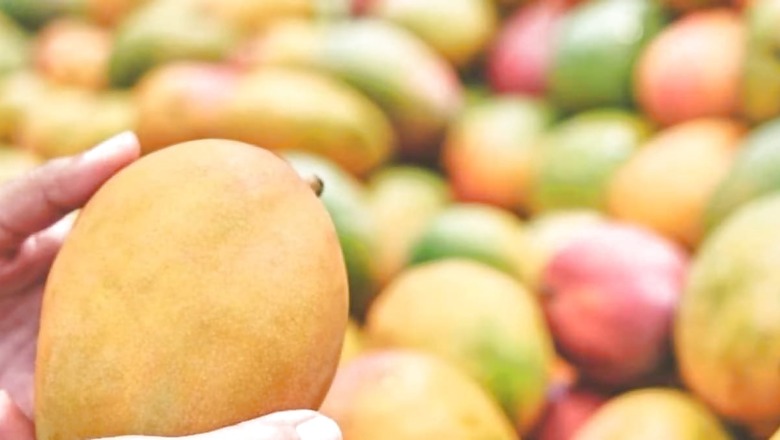
views
The practice of using calcium carbide as an artificial ripening agent has become increasingly common in India and even other countries. When combined with water, calcium carbide produces acetylene gas, which mimics ethylene action and thus helps fruits ripen faster. But it also leaves traces of arsenic and phosphorus, which are both highly toxic to humans and can cause severe health problems. In the wake of this alarming problem in India, the Food Safety and Standards Authority of India (FSSAI) has issued a fresh warning against the use of calcium carbide for artificially ripening mangoes.
Stating that the chemical causes serious health risks, the central food regulatory body has warned traders, fruit handlers and Food Business Operators (FBOs) operating ripening chambers to strictly ensure compliance with the prohibition on the use of calcium carbide for artificial ripening of fruits, particularly during the mango season. It has also advised the Food Safety Departments across the country to remain vigilant, take serious action and deal stringently against those found indulging in such unlawful practices.
“Calcium carbide, commonly used for ripening fruits like mangoes, releases acetylene gas, which contains harmful traces of arsenic and phosphorus. These substances, also known as ‘Masala’, can cause serious health issues such as dizziness, frequent thirst, irritation, weakness, difficulty swallowing, vomiting, skin ulcers, etc. Additionally, acetylene gas is equally hazardous to those handling it. There are chances that calcium carbide may come into direct contact with fruits during application and leave residues of arsenic and phosphorus on the fruits,” the FSSAI advisory read.
Noting that the use of calcium carbide remains banned under the Food Safety and Standards Regulations, 2011, it added that the use of ethylene gas is permitted as a safer alternative for fruit ripening in India.
“Ethylene gas can be used at concentrations up to 100 ppm (100 μl/L), depending upon the crop, variety, and maturity. Ethylene, a naturally occurring hormone in fruits, regulates the ripening process by initiating and controlling a series of chemical and biochemical activities. The treatment of unripe fruits with ethylene gas triggers the natural ripening process until the fruit itself starts producing ethylene in substantial quantities,” FSSAI stated.
The notice comes at a time when the seasonal fruit has arrived at the market, with the sales of mangoes going at peak.




















Comments
0 comment